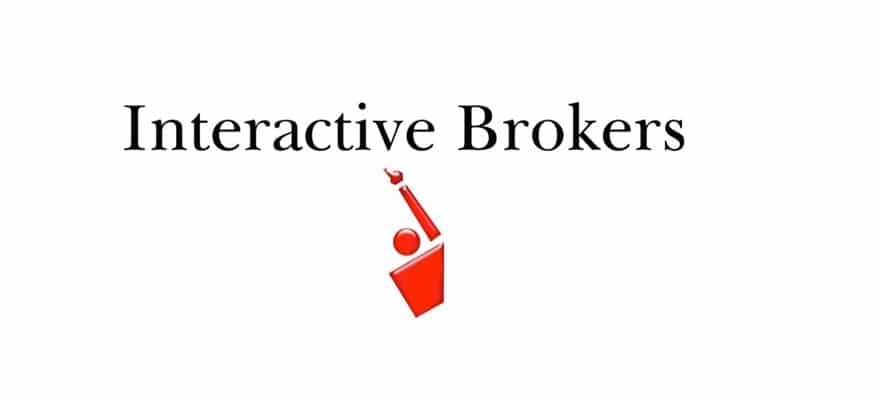Forex Magnates spoke with Jonathan Chait, longtime Director of Interactive Brokers for his perspective on the evolution of the firm’s versatile platform along with the forging of the current ECM-style paradigm. His full length interview can be read below.
1. Can you explain the rational and genesis of Interactive Brokers’ platform?
Our forex platform came to life as a result of having a multi-asset class currency Trading Platform for not strictly forex-related products, i.e. euro stocks, futures on globex, futures on US and Japanese stocks, etc.
We had a variety of stock, futures and options around the world but no easy way for people to have a high quality to repatriate any profits back to their base currency. Thus the need to have a forex service was clear and once we realized that offering some sort of retail level service where spreads would be 1% wide it did not coincide with our goal to find the best possible offering for transactions.
From there we started thinking we have a lot of stocks that are multi-listed, for example Royal Dutch trades in London and in Amsterdam. We had instant order issues with others such as Nokia and Deutsche Telecom and so we realized there was an arbitrage opportunity and you could buy these in various locales and with forex you could have minimum risk exposure.
As such we connected with Bear Sterns, one of the first groups interested in providing a real-time stream to retail. That partnership worked out very well and of course Bear Sterns was a global bank and so we started talking to the big money center banks and it took relatively little time – less than a year – to get the biggest banks on board with this concept. But it all started with Bear Sterns and at that time there wasn’t really anyone else offering that level of direct market access to interbank quotes in the forex space.
2. What do you surmise was the reason for the uniqueness of this strategy, i.e. why was there a lack of other players in the forex space offering this service?
At the time the model for interbank trading was a dealing system such as EBS. There were a couple platforms out there, Hotspot, FXall, Currenex – there were others out there but they weren’t really for small players and all required you have a prime broker.
Historically, as forex became less and less of a professional market and more accessible to normal traders there was an obvious need to connect the outside markets to the investor. In the early days, lets say 10 years ago, the only forex offering that I was aware of at the time were STM models where you dealt against a trading desk and the trading desk did whatever it wanted to hedge its exposure.
However, that meant that retail people were subject to an inherent conflict of interests where one microsecond after the execution, people’s interests were diametrically opposed to the retail investor. This is obviously not in the best interest of the clients.
Our background, coming from the exchange model where we offered a pure brokerage service to various exchanges, we thought why don’t we do the same thing with forex and this is really the foundation of our business. So we built up an order book from all of our Liquidity providers, and at that time there were just Bear Sterns and a series of banks, big players at the time. We put together a virtual order book, put together streaming quotes, and showed a deep order book, etc. We also made sure we tracked orders to make sure nobody was playing games.
Ultimately it was successful, our technology did take a little bit to gain traction and get noticed but now we are a successful player in that space. Moreover, now other forex brokers have seen the benefits of ECM style platforms and have started offering it though we were either the first or one of the first in this regard.
3. What are the advantages and disadvantages of your platform relative to other players?
I would say the advantages are that you have a complete access to the forex market – that means you get the spot cash, and you get it like banks get it, which is a settled product. After two days we actually settle the cash balances to you. That gives you the opportunity to buy EUR/USD, sell euros to us, and trade dollars to us, thus ending up with no effective position. This gives you full flexibility as to how you can manage your currency exposure.
However, we also give you access to the futures market and the forex futures are probably not as liquid as the spot, but they sometimes offer advantages to people who like to hold a long-term position and they do that with futures. Where the time slippage is not so important for say three weeks, and then trade around that through the spot. I think that is a big advantage for that and you can also utilize options around this strategy as well – we are a multi- asset class.
Perhaps most importantly, we are very religious about the fact that we preach no conflicts of interest. Our job is to give the best possible execution and we charge a small commission for this, but our benefit is fully transparent. We charged a define commission that you know up front and so the price you see on the screen is the price you get.
The main disadvantage is that we are a full scope broker-dealer. What this means is that to open an account with us you actually have to go through a long application process. This probably takes 45 minutes to do the application and we ask all the questions that a broker-dealer is required to ask. Conversely, the benefit you get is that you have access to our whole offering from a broker-dealer.






















